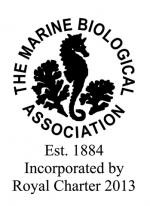Marine Biological Association

Overview
Since its foundation in 1884, the MBA at Plymouth in the UK has had a rich history and has seen many highly significant scientific discoveries at its Citadel Hill laboratory. Today, MBA scientists deliver an internationally-renowned programme of scientific research.
The MBA promotes scientific research into all aspects of life in the sea and disseminates to the public the knowledge gained. The research programme is structured around the broad themes “ecosystems and environmental change” and “mechanisms underlying biogeochemical and ecological processes. Within these themes, the MBA research groups carry out research on marine biogeochemical cycles, biodiversity and ecosystem function, science for sustainable marine resources, as well as running a programme of integrating sustained observations in the marine environment. The MBA also runs a strong and dedicated teaching and training programme for both researchers and the public.
Main Services
Provision of Biological resources and culture collections
- Cultures: live organisms, cultured within partnering institutes (particularly phytoplankton, protists) and chryopreservation facilities
- Biobanks: organisms or part of organisms, banked with partnering institutes
- Marine model species for research and technological development purposes
Access to ecosystems
- Coastal research vessels
- Sampling facilities and equipment
Technology platforms
- Microscopy and bio imagining: Unique facility for advanced live cell imaging, including 2x multi laser scanning confocal microscopes; 2-photon microscopy; TIRF microscopy(total internal reflection fluorescence); spinning disk confocal to be adapted for lab and ship-board platforms for live cell physiological imaging of natural phytoplankton populations; fully environmentally controlled (light, temperature, CO2) fluorescence microscopy with single cell chlorophyll fluorescence fluorimetry
- Molecular biology and omics technologies (PCR, Real-time PCR, DNA sequencing, cell culture)
- Electrophysiology, including patch clamp, ion selective electrodes, single and 2-electrode voltage clamp
- Biological analysis facilities (quantitative imaging)
Experimental facilities
- Aquaria and mesocosms (modern seawater system with holding tanks, algal culture facilities (including chemostats)
- Wet/Dry Laboratories
- Fish and invertebrate rearing facilities
Training and education
- Courses on state of the art technologies (including Microelectrode Techniques for Cell Physiology, and Practical Course in Advanced Optical Microscopy)
E-infrastructures and associate services
- Long term environmental data collections
Supporting facilities
- Conference and teaching facilities
- In-house restaurants and cafeteria


